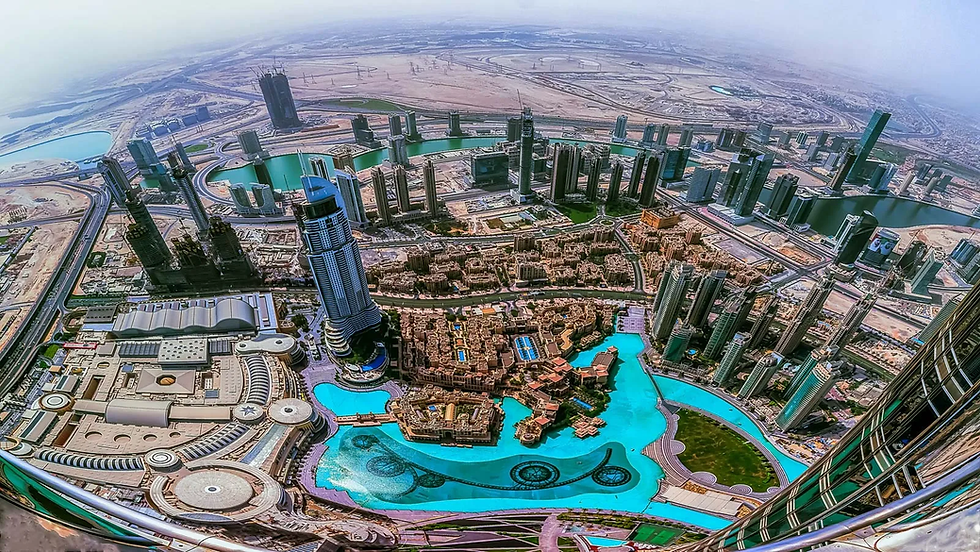In the wake of President Vladimir Putin's invasion of Ukraine two years ago, Dubai emerged as a favored destination for Russians seeking to safeguard their wealth or establish new lives. However, as reported by Bloomberg, the once-strong appeal of the glamorous emirate is now waning due to escalating living costs and tightened banking regulations spurred by US sanctions.
Bankers, executives, and investment professionals have noted a slowdown in the flow of Russian funds into the United Arab Emirates (UAE), particularly in Dubai. While there's no anticipation of a mass exodus of Russian capital already in the UAE, executives suggest that the emirate has likely reaped most of the benefits from Russian money and isn't poised for significant further inflows.
The influx of expatriates to Dubai has driven up rents and daily expenses, prompting some Russian residents to explore alternative jurisdictions or even contemplate returning home. Despite the absence of sanctions on Russia in the Gulf country, Russian entities establishing bank accounts now face heightened scrutiny from local banks, as the UAE faces mounting pressure from the US to address potential sanctions evasion.
Henley & Partners, an immigration investment firm, has observed a decline in the number of Russians settling in the UAE. Philippe Amarante, Head of the Middle East at Henley & Partners, remarked that some Russian clients have downsized their properties in Dubai and relocated back to Moscow or other appealing jurisdictions like Mauritius.
UAE-based banks, including Emirates NBD Bank PJSC, Mashreqbank PSC, and First Abu Dhabi Bank PJSC, have intensified their scrutiny of Russian entities in recent months to ensure compliance with US sanctions, according to insiders cited by Bloomberg.
While middle-class Russians without sanctions haven't faced significant hurdles in opening accounts, those who have been sanctioned or have political ties to sanctioned individuals have encountered difficulties, as disclosed by sources familiar with the matter.
Emirates NBD stated its commitment to combatting financial crime and adhering to international sanctions but declined to comment further. Mashreqbank and First Abu Dhabi Bank did not respond to requests for comment.
MMC Norilsk Nickel PJSC, Russia's largest miner, opted against commencing trading operations in the UAE due to logistical and banking challenges, according to sources familiar with the company's operations.
Although Dubai initially witnessed an uptick in wealthy Russians seeking property in the aftermath of the invasion, the impact on the UAE economy is expected to be relatively minor, given interest from affluent individuals worldwide. However, Dubai may feel a more pronounced effect due to its heavier reliance on foreign investment and real estate compared to Abu Dhabi.
Despite these challenges, some Russian businesses are still making moves in Dubai. United Co. Rusal International PJSC relocated its global trading operations to Dubai last year. Oil traders, who migrated from Geneva and London at the war's onset, continue to favor the UAE, utilizing the dirham as a convenient alternative to the dollar.
Nevertheless, tighter scrutiny has been imposed on this group since the US escalated sanctions on crude oil prices in October, according to insiders.
Despite the evolving landscape, Russians have left their mark in Dubai, establishing medical facilities, dentists, and even a football academy. However, for individuals like Kozlov, the allure of Dubai as a transient hub may not be enough to sustain their presence. "This is like an airport cafe where everyone is waiting for the next flight," Kozlov remarked.
By fLEXI tEAM
.png)
.png)



Comentários